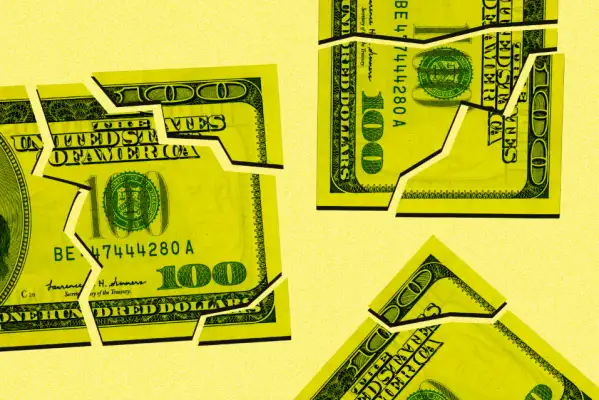Most Millionaires Favor Tax Hikes... for Anyone Richer Than They Are

Most millionaires support imposing higher income taxes and a wealth tax, according to a new poll — as long as those tax increases are for people richer than them.
About 6 in 10 millionaires surveyed in a YouGov poll released Monday said they would support a new marginal tax rate of 50% or more on annual income over $100 million. Currently, the highest federal tax bracket in the U.S. is 37% for earnings over $609,350.
“Even millionaires support higher taxes on the rich,” Morris Pearl, chair of the Patriotic Millionaires, said in a statement. The advocacy group, which commissioned the YouGov poll, represents high-net-worth Americans who support higher minimum wages and taxes on the wealthy.
Similarly, the poll found that 56% of millionaires would “strongly” or “somewhat” favor a progressive wealth tax on “extreme wealth,” affecting households with a net worth of at least $192 million, or 1,000 times the median U.S. household wealth. The wealth tax would cap out at 8% for households worth $192 billion or more. Ostensibly, this top bracket would only apply to a handful of U.S. billionaires, including Tesla CEO Elon Musk, Amazon CEO Jeff Bezos and Meta (Facebook) CEO Mark Zuckerberg.
Tax the rich(er)?
The YouGov poll is based on responses of 800 Americans who self-reported a net worth of at least $1 million, excluding the value of their home. It was fielded May 24 to June 6.
The poll itself, however, primarily gauges sentiment on tax policies for centi-millionaires (people worth hundreds of millions of dollars) and billionaires.
In one question, respondents were asked how they define “extreme wealth.” The most popular responses were defined as having assets worth over $101 million. Only 4% defined extreme wealth as having assets between $6 million and $10 million in value.
Most respondents said they were likely to support a 2% wealth tax on households with more than $50 million and $100 million in assets. But there was far less appetite to tax households worth less than that amount.
Wealth vs. income tax
In the U.S., the federal government’s primary source of money is individual income taxes — that is, taxes on the money people earn usually from their jobs. Tax rates on income vary from 10% to 37% and are applied progressively, meaning certain portions of income are taxed at certain rates.
For example, the federal income tax on a single person earning $58,000 a year looks like this:
- The first $11,600 is taxed at 10%,
- $11,601 to $47,150 is taxed at 12%,
- and $47,151 to $58,000 is taxed at 22%.
For folks earning more than that, there are four more tiers ranging from 24% to 37%. In the 1980s, the top income bracket for the highest-earning Americans was 70%, but that number has shrunk several times over the past several decades.
This method also has limitations when it comes to taxing the wealthiest Americans because most of their wealth is not derived from their salaries. Rather, it’s a combination of dividends, capital gains and salary as well as the value of their assets, like their ownership stake in a company, their house and other real estate.
A wealth tax would tax the cumulative value of all their wealth, not just how much they earn. The U.S. has some wealth taxes, like property and estate taxes, but it does not fully tax someone’s net worth like some other countries, including Colombia, France, Norway, Spain and Switzerland.
In recent years, the U.S. has been lurching toward a wealth tax system, with progressive Sens. Bernie Sanders, I-Vt., and Elizabeth Warren, D-Mass., leading the charge. In March, Warren introduced the Ultra-Millionaire Tax Act, a proposal that would levy a 2% wealth tax on households worth $50 million or more.
Pearl, from the Patriotic Millionaires, supported the measure.
“Billionaires and millionaires like me do not amass such extraordinarily large fortunes because we work harder,” he said at the time. “Instead, it’s because we rigged the tax code so that wealthy people like us who make most of our money off our assets pay next to nothing — or sometimes literally nothing — in taxes.”
Despite public support of a wealth tax from most U.S. millionaires themselves, the proposal has stalled in Congress and is unlikely to pass this session.
More from Money:
5 Best Tax Relief Companies of 2024
Why States With No Income Tax Aren't as Affordable as They Seem

